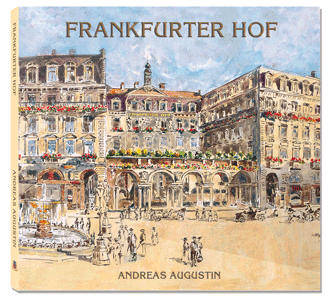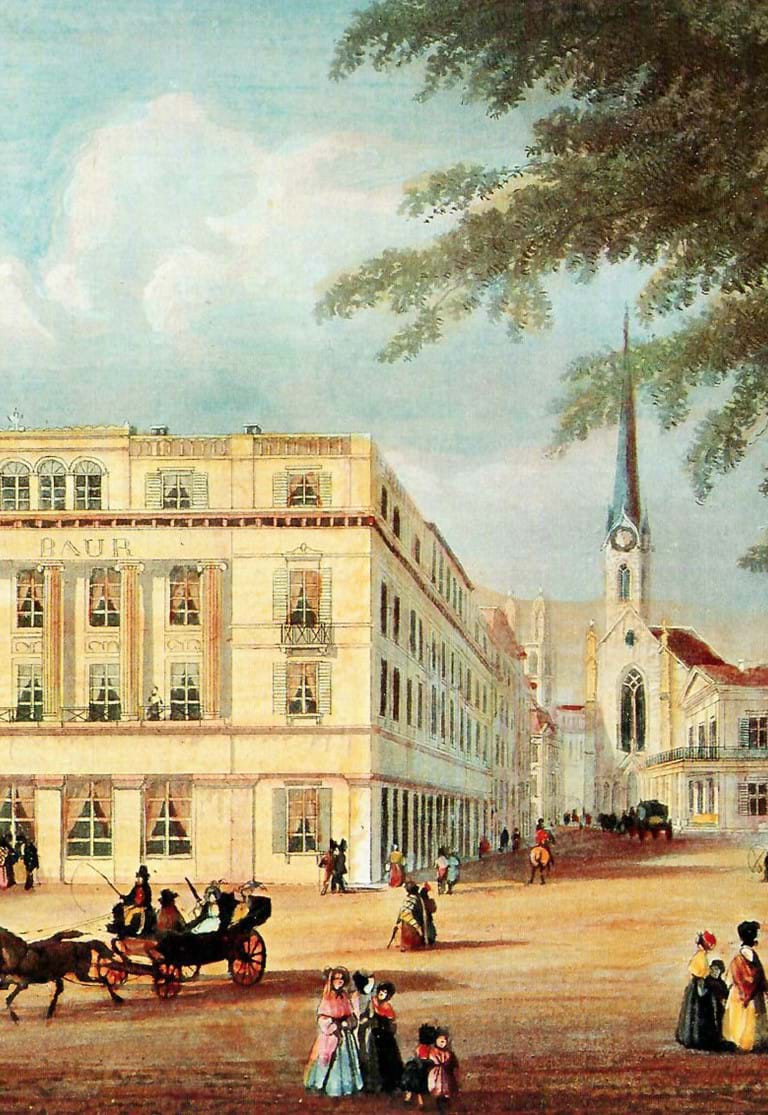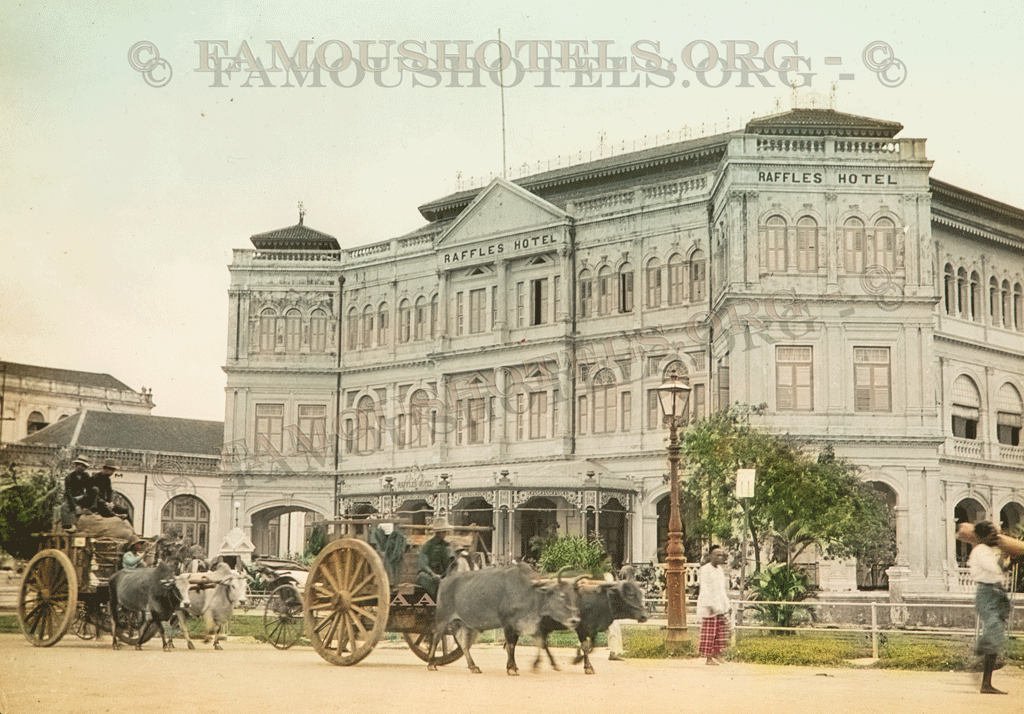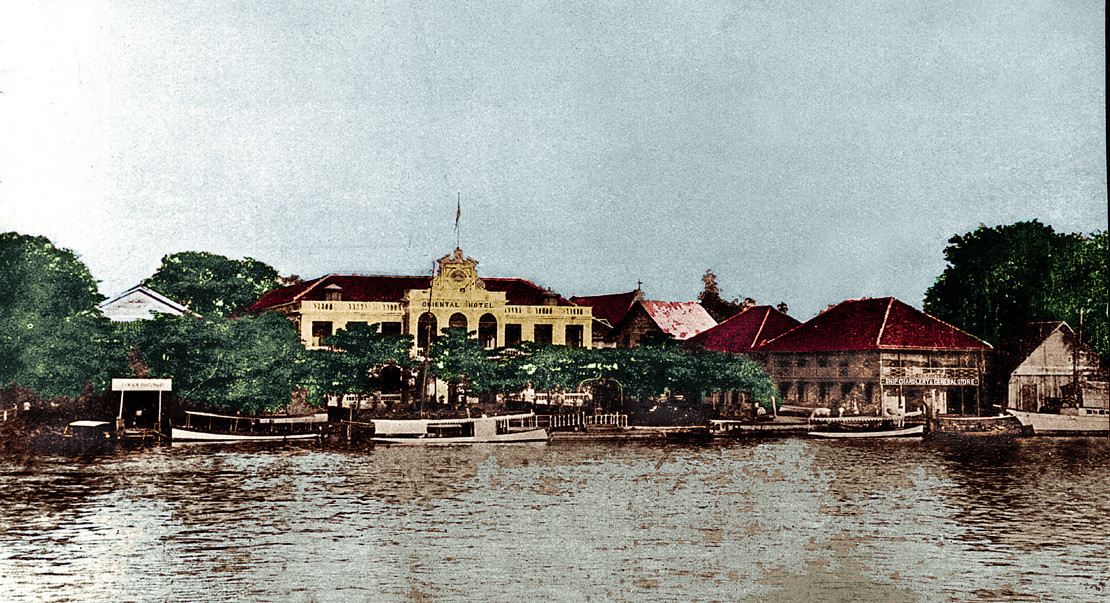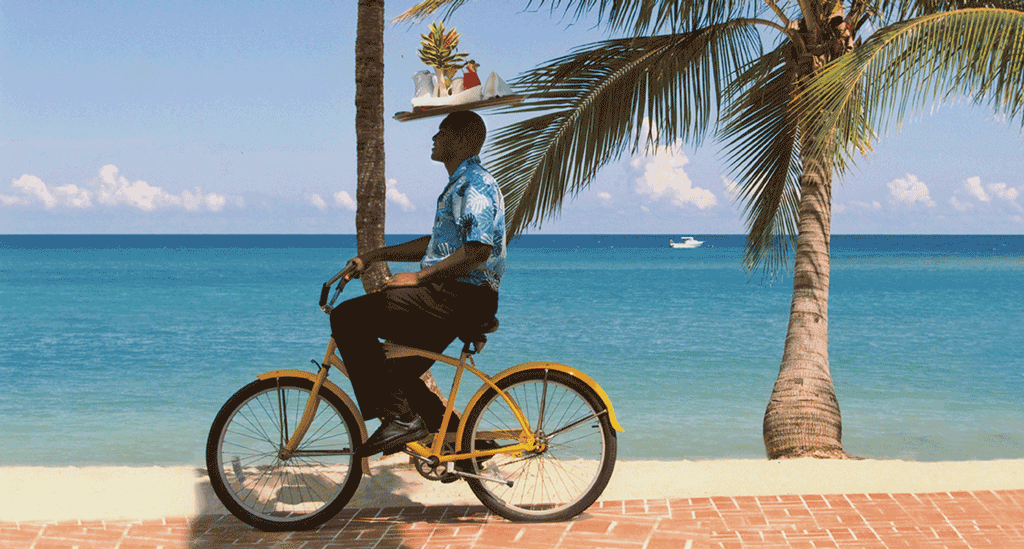Tell me a Story: Mount Lavinia
( words)
'Tell me a Story' compiles stories from travellers, who like to share their impressions with us:
Want to Tell Me A Story? - send it to andreas.augustin@famoushotels.org
This diary has been submitted by Cheryl Patricia Gwyther
Hotel: Mount Lavinia, Sri Lanka
A TANTALISING PROMISE OF SURREAL BEAUTY
1
A bride of exquisite and ravishing beauty. Exuding a grace and charm that only she, a Ceylonese, could possess. Her enrapturing smile, painted in deepest red, the very same red as her sari, so luxuriously opulent and ornate, worn with panache and an easy, nonchalant elegance. Seated next to her on the tall white marble staircase, the groom, dressed in a sober black suit. More subdued and restrained than his exotically glamorous teenage bride, he watched her exuberating radiance with a certain embarassment, as if he were witnessing for the first time a side of her previously unknown to him.
This is the enchanting greeting that Mount Lavinia extends to its western visitors. Unleashing an enticing image of exotic beauty that could never be ours. Embracing us with its peculiarly bewitching and mesmerizing allure, so unattainable and out of reach on our tiny island, threaded along the cold and shivering fringes of the north Atlantic seaboard, yet here so very real and so very tangible.
A splendid neoclassical mansion, freshly painted in purest white, a rectangular fountain adorned with the statue of a woman standing at its centre. Surrounded by perfectly manicured bushes, whose minute red flowers create the only trace of colour. Where Ceylonese guards, dressed in white colonial uniforms, quietly keep watch, discreetly observing all who pass within her gates. Inside, a vast and grandiose hall, the floors in lucid white marble, the walls in pure fresh white. Flowers of paradise, magificent and dazzling, stand on an intricately carved antique table, and colour the hushed elegance of this refined abode, perfectly recapturing the splendour of a bygone age.
Mount Lavinia casts its hypnotic spell with its tantalising promise of a surreal, irresistible beauty, waiting to be ours, compelling us to return to its enigmatic embrace. It is impossibile to evade its haunting call, to remain unmoved by its timeless allure. Magnificently sumptuous, an unending maze of cool, high rooms, and wide, shadowed passages. Fascinating and spellbinding, whispering scenes from magic fairy tales, delicately recalling the hidden worlds of the secret imagination, retelling them in alcoves, now real and alive, in niches of forbidden extravagance, of inadmittable indulgence.
Its mysterious charm eminates in quiet and intimate notes of resounding beauty. It is an exquisitely feminine form of beauty. Clean, fresh and breezy. Like the gentle opening of the fragrantly scented petals of flowers in spring. The haunting enchantment of its glorious past perfumes the air, imbuing a profound sense of harmonious serenity.
2
In 1796 the British took control of the port of Trincomalee, the world's second largest natural deep water port, which Lord Nelson defined as "The finest harbour in the world." It was the first part of Ceylon to come under British control. Trincomalee was a vital base for naval ships, allowing Britain to protect and defend her colonial interests in India and extend her thrust eastwards across the Orient. And equally importantly, Ceylon commanded a strategic position on the great East-West trading routes across the vast Indian Ocean.
Thomas Maitland, who was born in 1759, one year after Horatius Nelson, was appointed Governor of Ceylon in 1805. Nelson died that same year, in the Battle of Trafalgar, a victory that gave Britain supremacy of the seas over the other leading colonial powers of the time.
Maitland came from one of Britain's great aristocratic families, and owned land and castles in Scotland. He had grown up in a world of wealth and privilige, in one of the most glorious periods of Britain's colonial history, when the nation was claiming victories over the Dutch, the Spanish and even the French in virtually every corner of the globe. Before arriving in Ceylon, Maitland had served four years with the West India Regiment in the Caribbean, where Nelson had also served, and he was well acquainted with the luxuriant beauty of the tropical islands of Jamaica and Martinique and the sensual charms of their peoples.
Indeed, in 1787, Nelson married Fanny, a native of the Caribbean island of Nevis, although eleven years later, in 1798, he met Lady Emma Hamilton, a well-endowed woman with a shady past, and none less than the wife of the British ambassador to Naples. Nelson made no attempt to keep his illicit love affair with Emma a secret, and the couple lived openly together, and had a child, Horatia.
Maitland brought an infinite array of influences from his wealthy and priviliged background to Ceylon. Shortly after his arrival, he indulged in a six month tour of the island, in search of the perfect location for his country residence. There can be no doubt that Mount Lavinia stands on what must certainly be the most beautiful stretch of land overlooking the sea that could possibly exist on this island nation. And given his experience of Martinique, he must have known precisely what he was looking for.
His sumptuous country residence, built in 1806, is inspired by a royal palace in London. A reflection of his own flamboyant personality, possibily flamed by Britain's victory in the Battle of Trafalgar in 1805, and the new desire in London to look to the Orient in search of new lands to colonize as America had gained independence from the British in 1783.
Maitland's period as Governor of Ceylon coincides with a truly momentuous period in Britain's world standing as a great colonial power. Although only a minute island, Ceylon was of key importance, having the best deep-sea port in the known world and commanding a vital strategic position on the great east-west trading routes across the Indian Ocean. Maitland must have been seen as a towering figure of enormous standing by every nation across the world. And there must have been a mood of feverish excitement among the British at that time, both at home and in her colonies, wondering what stunning conquests the nation would next achieve.
Maitland had been accustomed since birth to the trimmings of wealth and the advantages of privilige, and the knowledge that the other main contenders for colonial power had been left stricken by the might and cunning of Britain's naval forces probably gave him a sense of freedom to do as he pleased, in a way that he could never have done in London, where the ruling classes feared that the French revolution of 1789 might spread to England, and were anxious to conceal any form of the extravagant excesses in which the French nobility had so openly indulged in Paris and Versailles, either within Britain itself or in her colonies. But If London still wished to convey a picture of sober conservatism in its foreign territories, Maitland most certainly did not. He was in his mid-forties, a bachelor, something quite common in Britain's upper social circles at that time, and held considerable power and influence, both in Ceylon and in London, where he had even been made a Privy Councillor in 1803.
Secretly, Mount Lavinia was not only a lavish and sumptuous place for Maitland to live out his extraordinarily energetic private life, but also a delightful hideaway from the sometimes dull and boring world of puritanical England, so strict and severe, unfaltering in its adherence to its rigid social rules, built on the pillars of relentless self-discipline and unwavering, sacrificial self-denial. A world where deviance was not tolerated, and where indulgence and extravagance were often perceived as evils.
Mount Lavinia is an ode to the beauty of all that was forbidden in the formal, stifling and staid world of pre-Victorian Britain. Its very name is inspired by Maitland's secret lover, Lovinia, a half-Ceylonese, half-Portugese dancer, of low social caste. Even the very slightest form of acquaintance would have been unthinkable. Marriage would have been inconceivable.
But Maitland was captivated by her dark, exotic beauty and her slight, sinuous body, and he had a secret underground passageway built between the well of her house and the winecellars of Mount Lavinia so they could meet in secret.
It was an affair that lasted six long, intense years, and it only ended when news of Maitland's glitzy and flamboyant lifestyle met with predictable disapproval in London. He was sent away from Ceylon, and appointed Governor of Malta, where he died, thirteen years later, at the age of sixty-five.
3
Lavinia is still with us, whispering her tender words of love through the stone walls and marbled floors of this bewitching abode. That after two hundred years still carries her name. She is still waiting for her loved one to return. To embrace him with the beauty of her love. That has as many voices, as many silences, as many fagrances, as many colours, as nature itself.
The compelling beauty of such a pure and intense love never fades or dies. Like nature itself, it is always there, patiently waiting to greet us, to inspire us, to give sense and meaning to life itself. With her colours, sometimes fiery and vibrant, like the exotic feathers of birds of paradise, sometimes pale and mellow, like the soft glow of the sky before twilight. With her fragrances, sometimes pungent and intoxicating, like the exquisite scent of tropical flowers, sometimes mild and muted, like the perfume of the sea at the break of dawn. With her silences, sometimes haunting and hypnotic, like the still light of the moon over the calm dark waters of the ocean, sometimes dazzling and breathtaking, like the hushed dance of translucent veils of mist rising in slow waves above the high roof of the jungle. To live her voices, sometimes roaring and powerful, like the breaking of the huge mighty waves of the monsoon seas, sometimes whispering and melodic, like the chirping of birds in the quiet of the close of evening.
Love lives in fantastical and imaginary worlds, first told in fairy tales, magical and spellbinding, then fired and flamed by our most secret and intimate desires, never to be revealed, not even to ourselves, before becoming real and palpable in the heavenly and timeless embrace of the person we cherish most.
Lavinia's great love departed without her. Her unbearable pain and melanchony sorrow must have tortured and tormented her to the end of her days. Her soul does not rest in peace. She still wanders in the niches and alcoves of this beautiful abode, waiting to see him again, to embrace him, to lavish him with the beauty of her love.
She still keeps watch, as her home is enhanced and extended, as it entertains the British and their changing circles of friends, as it is humiliated, auctioned, its contents sold, as it is abandoned, repurchased, transformed, now into a boarding house, now into a hospital, as it falls into disuse and disrepair, as it is once again acquired, rebuilt, restored and beautified. There can be very few buildings in the world that have been so closely intertwined with the multitude of complex changes that have taken place across the globe over the last two centuries. But none of them are graced with the bewitching beauty of Lavinia's pure and entrancing love.
Want to Tell Me A Story? - send it to andreas.augustin@famoushotels.org

